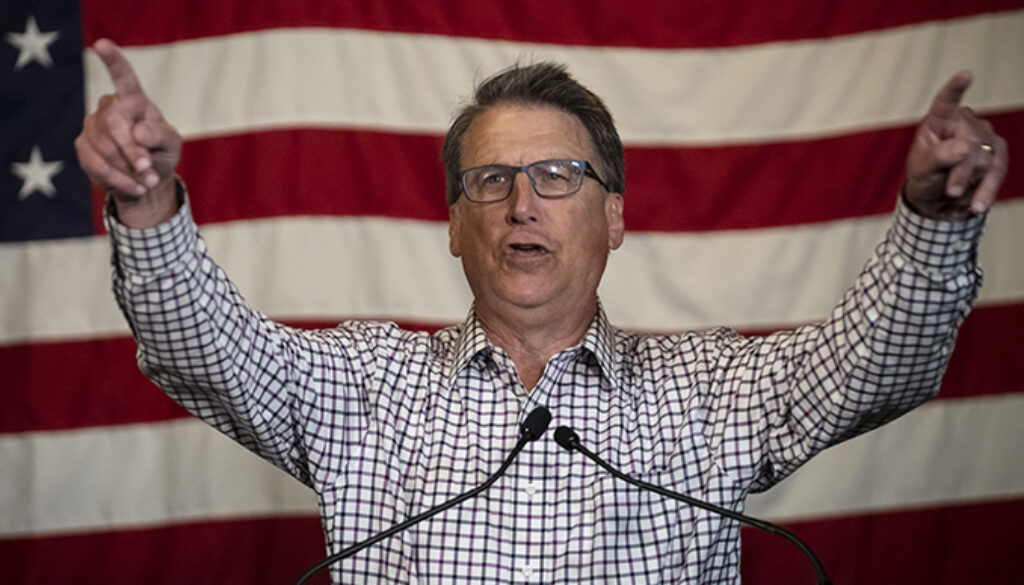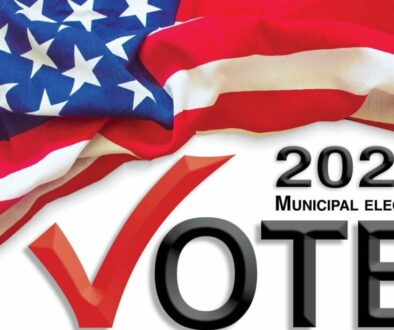Decade since NC governor win, McCrory trounced in Senate bid
RALEIGH — A decade ago, Pat McCrory was king in North Carolina’s Republican Party. The former Charlotte mayor became the first GOP governor in two decades when he won in 2012 by 11 percentage points.
Today, the moderate has been tossed aside in state GOP politics, trounced by 34 percentage points in the U.S. Senate primary by Rep. Ted Budd, who was a little-known congressman outside his district until former President Donald Trump endorsed him last June.
The Trump shift within the Republican Party is making casualties nationally out of politicians like McCrory, who says he supported many Trump policies but did not care for his style — a nuanced view that apparently did not help him in a state the former president won twice.
Now McCrory’s long electoral career appears over at age 65.
“I’ve played the game. I’ve been played by the game. I’ve won the game. But I’ve lost the game,” McCrory said in his concession speech on primary night, recalling his first Charlotte City Council victory in 1989. “Politics is a tough sport, a very, very tough sport.”
Budd and his allies successfully painted McCrory as weak on conservative principles. Trump called McCrory someone who didn’t “stand for our values.” They pointed out that he lost gubernatorial general elections in 2008 and in 2016, when Democrat Roy Cooper beat him by just 10,000 votes.
Two super PACs spent over $12 million largely to vilify McCrory, calling him a liberal ready to embrace President Joe Biden and accusing him of raising gas taxes and opening the door to critical race theory in schools.
McCrory’s “not a conservative fighter,” Budd said in an interview last month. “He’s been unreliable as a conservative and he’s lost this state twice.”
It’s a striking descent for McCrory, whose 14 years leading North Carolina’s largest city showed Republicans could win in cities that were turning more liberal.
During four years as governor, McCrory signed laws cutting taxes and regulations, prohibiting “sanctuary cities” and directing transgender people to use the public bathroom for their sex at birth.
McCrory accused Washington-based Club for Growth, whose affiliated super PAC spent the most on attack ads, of buying an election for Budd.
“When I saw the Club for Growth and my worthwhile opponent Congressman Budd say that I’m a Republican in name only I went, ‘Are you kidding me? Are you kidding me?’” McCrory said. “We did a lot for the state and for the city, implementing good conservative measures that I think made a difference not just for the next election, but for future generations.”
The super PAC ads at times omitted context that would have favored McCrory. But McCrory had not endeared himself to enough people voting in GOP primaries.
“He was not an avid, strict Republican,” said state Rep. George Cleveland, an Onslow County Republican who voted for Budd. Cleveland said he and his constituents believed McCrory “would not follow the Trump agenda.”
When the North Carolina Values Coalition endorsed Budd, group executive director Tami Fitzgerald ripped into McCrory as someone “who barely tolerates pro-life, pro-family evangelicals and Catholics in the conservative movement because he needs their votes.”
Some voters bore out indifference to McCrory. Republican voter Frank Self, 61, of Apex, said before voting last week for Budd that McCrory’s time as governor failed to warrant much consideration for him.
“I do remember when he was governor — not that he was necessarily bad, but I don’t remember anything outstanding,” Self said.
And a Club for Growth Action ad featured actual North Carolina voters, some of whom referred to McCrory as a “RINO (Republican in name only) Republican” and a “wolf in sheep’s clothing” when it came to conservatism.
McCrory warned against such rhetoric, saying it treats him and the 25% of primary voters who voted for him like pariahs. He said that could come back to hurt Budd and future Republican nominees who need the votes of Republicans and registered independents in general elections.
McCrory is holding back for now an endorsement of Budd in the fall election against Democratic nominee Cheri Beasley. He said he wants assurances that his bloc is treated with respect.
“What are they going to do with the people who are like me?” McCrory said in an AP interview late last week.
McCrory said he hoped to remain in the political conversation, whether it be through business, teaching or returning to the airwaves as a radio host.
“I’m going to be searching for other ways to have a voice,” McCrory said, but “I don’t know how that’s going to be.”
 Twitter
Twitter Facebook
Facebook Instagram
Instagram


